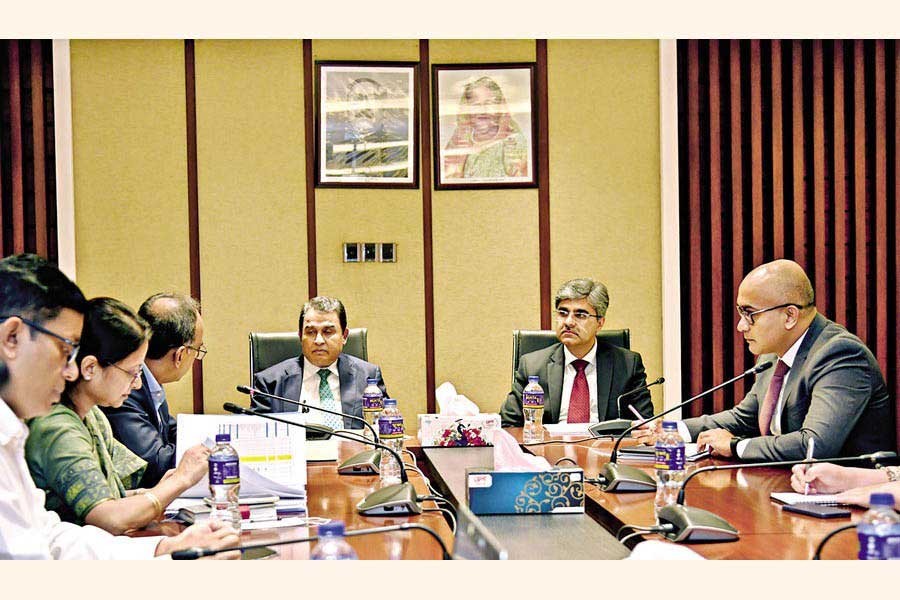
Published :
Updated :

Eat healthy, live healthy. That is a common saying. If one does not follow the health rules, it is sure one will fall ill. Then is not it wise to visit the doctor before one's illness turns so serious that one loses the ability to move? So, when one sneezes, one should be alert. If one waits for the symptoms like coughing or vomiting, it will indicate how fast the patient needs to be hospitalised. Further wait will just aggravate the health condition and the patient will need to be stretchered to the doctor before being operated upon. The economy of a country is like that. If the economy shows signs of illness, it is wise to call in a doctor before it takes a turn for the worse. That is why a team of the International Monetary Fund (IMF) was here in Dhaka recently. They talked to different quarters, tried to ascertain the symptoms of illness and the medication needed. They discussed reforms in the banking sector, the exchange rate, foreign exchange reserve, the tax-GDP ratio and some other issues, all linked to macro-economic stability. Finally, there was a staff-level agreement that US$ 4.5 billion would be available for Bangladesh in seven installments. Of the amount, $3.2 billion will be available under the Extended Credit Facility (ECF) and the Extended Fund Facility (EFF) and $1.3 billion under the Resilience and Sustainability Facility (RSF).
Under the Extended Credit Facility (ECF), the IMF provides financial assistance to countries with protracted balance of payments problems. Under the Extended Fund Facility (EFF), the IMF assists a country, when it faces serious medium-term balance of payments problems because of structural weaknesses that require time to address. Compared to assistance provided under the Stand-by Arrangement, assistance under an extended arrangement features longer programme engagement-to help a country implement medium-term structural reforms-and a longer repayment period. The third is the Resilience and Sustainability Facility (RSF). It complements the existing IMF lending toolkit by helping low-income and vulnerable middle-income countries address longer-term challenges, including those related to climate change and pandemic preparedness.
The dollar fund to be available from the IMF is not an all-important thing. What is most important is the economic check-up the IMF did signals how the health condition of the patient is. That gives other lenders the much-needed confidence that the patient is under care and they can make deals with him. That opens up the access to funds from other lenders. Already the World Bank vice president for the South Asia Region visited Dhaka hot on the heels of the IMF team's visit. He cited "important reforms that can help the country stay on the resilient and inclusive growth path and create opportunities for the people" as the country works toward the goal of achieving upper-middle income status by 2031.
We should remember that we are not yet under the IMF's oversight as the multilateral lender's board approval is needed before start of the funded programmes. We should also remember that the pills may be bitter but life-saving. If the pill is not administered, the patient will not recover. But we need to be careful that the people in no way are put at the receiving end of any imprudent decision that can cost them dear.
anisurexpress@yahoo.com


 For all latest news, follow The Financial Express Google News channel.
For all latest news, follow The Financial Express Google News channel.